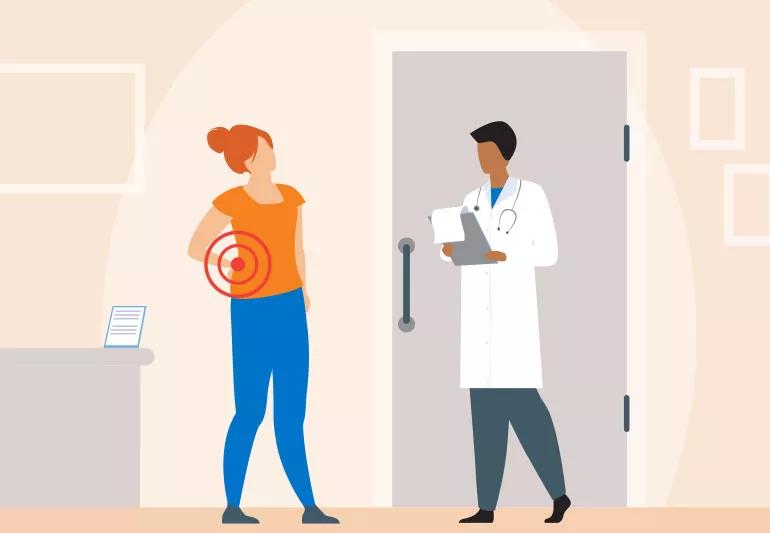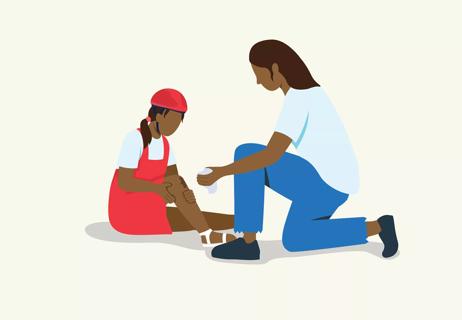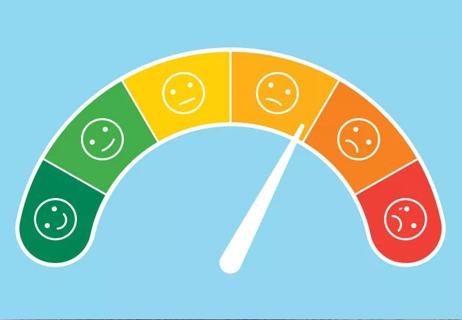Arthritis, migraines and endometriosis are common causes of chronic pain

For years, painful knee arthritis hobbled you. Then, you had a knee replacement. Hurrah! So … why are you still in pain?
Advertisement
Cleveland Clinic is a non-profit academic medical center. Advertising on our site helps support our mission. We do not endorse non-Cleveland Clinic products or services. Policy
There are a lot of reasons for chronic pain. Different from acute pain, chronic pain doesn’t go away after an injury or illness — in some cases, there are even unknown reasons for why it happens.
Tara-Lin Hollins, MD, tells us a bit about the various causes of chronic pain, how it’s different from regular pain and what to know about treatment options.
The best way to understand what chronic pain is to figure out what it’s not. In general, pain specialists understand pain by breaking it up into two categories:
Advertisement
Think of the last time you went to a rock concert or loud show. When you’re in the venue with the music blaring and you’re experiencing the loudness in your ears, that’s kind of how peripheral pain affects your body — instantly and in the moment. But let’s say after the band ended their show and you went home, you kept hearing that ringing in your ears. This is how centralized pain affects you — through a long-lasting, lingering effect.
“We’re realizing more and more that addressing only peripheral pain is not enough for patients who also have centralized pain,” says Dr. Hollins.
Specific examples of chronic pain include feelings of aches, cramps or other forms of discomfort, including migraines and headaches, as well as back, neck and joint pain.
While the type of pain you’re experiencing can be hard to decipher at times, working with a pain specialist can help you get a clear answer on whether you’re dealing with peripheral or centralized pain (or a combination of both).
Centralized pain is typically the type of pain associated with chronic pain. Traditionally, doctors thought centralized pain only occurred with nerve injuries such as spinal cord injury or stroke. But we now know there are a host of other conditions that can lead to chronic pain. And understanding them is a helpful step in knowing how to manage your pain and improve your quality of life.
Some well-known cause of chronic pain include:
Advertisement
Typically, healthcare providers treat peripheral pain with medications to decrease inflammation, injections or surgery to correct the underlying issue.
For example, anti-inflammatory drugs (NSAIDs) are used to treat inflammatory pain from osteoarthritis. But these medications are often not equipped to tackle pain problems caused by your central nervous system.
For centralized pain, providers can use medications that act on your brain or spinal cord, such as:
Seeing a psychologist can also be critical in addressing central sensitization. A pain psychologist would be ideal, but any psychologist who offers cognitive behavioral therapy (CBT) can also help. Learning stress management techniques and addressing anxiety are effective treatments as well.
Historically, pain specialists asked you to score your pain on a scale from 0 to 10 to see how well treatment was working. But it’s important to acknowledge that this format may not work best for everyone, especially if you experience chronic pain.
For example, two people can have a pain score of 8, but one may spend all day on the couch, while the other goes out shopping and interacts with their family.
Advertisement
In a lot of cases, healthcare providers will try to test how you engage in everyday activities and how your pain is affecting your ability to do them. Instead of treating a number, pain specialists look for functional improvement. They often find that when your centralized pain is treated, you can do activities you previously curtailed due to your pain.
So, if you’ve lived for years with spine pain, knee pain, headaches, arthritic pain or persistent pain after a successful surgery, consider seeing a pain specialist. You may need help for centralized pain — and available treatment options may help relieve your symptoms and then, you can live your life more easily.
Advertisement
Learn more about our editorial process.
Advertisement

Not all signals of physical pain actually make it to our brains — and you have some power over it

Good pain or bad? Know the different kinds and when to seek help

Therapy helps pain sufferers get their sleep

Tips to help your pain management specialist help you

Research shows that the pain experience differs for women and men

The causes of fibromyalgia are complex, but an overactive immune system might be part of it

Low-level, dull soreness that goes away with rest or physical activity is normal — but if it lingers or worsens, see a healthcare provider

When your lower back hurts, stretching and staying active can be key to finding relief

If you’re feeling short of breath, sleep can be tough — propping yourself up or sleeping on your side may help

If you fear the unknown or find yourself needing reassurance often, you may identify with this attachment style

If you’re looking to boost your gut health, it’s better to get fiber from whole foods